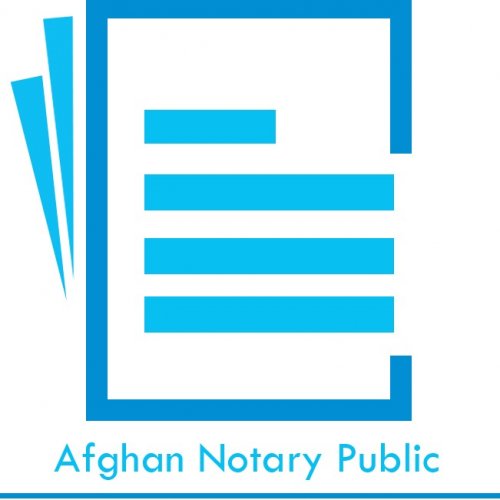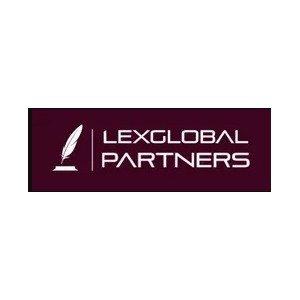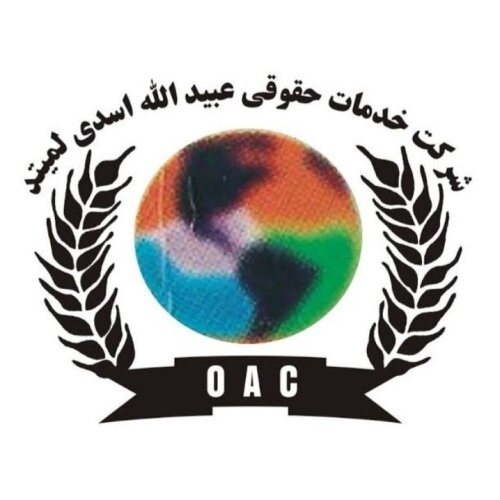Best Commercial Litigation Lawyers in Afghanistan
Share your needs with us, get contacted by law firms.
Free. Takes 2 min.
Or refine your search by selecting a city:
List of the best lawyers in Afghanistan
About Commercial Litigation Law in Afghanistan
Commercial litigation in Afghanistan involves legal disputes related to business and commercial transactions, including contracts, partnerships, intellectual property, debt collection, and trade agreements. Afghanistan's commercial litigation framework aims to resolve disagreements between businesses, individuals, or government entities either through the courts or alternative dispute resolution methods. The legal system is a mix of statutory law, Islamic principles, and customary practices specific to different regions and communities. Over recent years, ongoing reforms aim to modernize and clarify commercial laws and court procedures, though challenges remain due to institutional capacity and the evolving legal environment.
Why You May Need a Lawyer
Dealing with commercial disputes in Afghanistan can be complex due to legal, cultural, and procedural aspects unique to the country. People may require legal help in various situations, such as:
- Navigating complex business contracts or resolving disputes over agreements
- Addressing partnership or shareholder disagreements
- Handling claims related to breach of contract, warranties, or representations
- Managing real estate or property disputes involving commercial interests
- Pursuing or defending debt recovery actions
- Resolving joint venture or cross-border trade disagreements
- Tackling issues involving trademarks, copyrights, or patents
- Defending your business against claims or lawsuits brought by others
- Understanding evolving laws and procedural requirements in Afghan courts
- Negotiating settlements or representing your interests during alternative dispute resolution processes
Local Laws Overview
Commercial litigation in Afghanistan is governed mainly by the Commercial Code, Civil Procedure Code, and relevant decrees and directives issued by Afghan authorities. Afghanistan recognizes both civil and commercial disputes but processes them under similar procedural rules. Key aspects include:
- The Commercial Code and relevant statutes govern contracts, negotiable instruments, company formation, and bankruptcy.
- Sharia law may influence court decisions, especially where statutory law is silent or ambiguous.
- The primary forum for commercial litigation is the court of first instance, with the right to appeal to higher courts.
- Alternative dispute resolution, including mediation and arbitration, is encouraged, particularly for international or cross-border disputes.
- Legal procedures are often conducted in the official languages, Dari or Pashto, with documentation requirements.
- Foreign businesses may face additional considerations, including recognition of foreign judgments, enforcement issues, and compliance with investment laws.
- Recent reforms aim to streamline procedures and support economic development, but practical enforcement and predictability can vary from region to region.
Frequently Asked Questions
What is commercial litigation?
Commercial litigation is the process of resolving business-related disputes through legal proceedings in court or through alternative dispute resolution mechanisms like arbitration.
What types of cases are considered commercial disputes?
Common cases include breach of contract, business partnerships disagreements, shareholder issues, debt recovery, intellectual property disputes, and disputes arising from trade agreements.
Which courts handle commercial litigation in Afghanistan?
Commercial disputes are typically heard by primary (trial) courts based on the nature and value of the case. Appeals are possible in higher courts within the Afghan court system.
Can foreign companies participate in commercial litigation in Afghanistan?
Yes, foreign companies can initiate or defend commercial litigation, but they must comply with Afghan procedural laws and may need to work with local legal representatives.
Does Afghanistan recognize arbitration for commercial disputes?
Arbitration is recognized as a valid method to resolve commercial disputes. Many businesses prefer it for its confidentiality and faster resolution compared to court proceedings.
How long does it take to resolve a commercial dispute in court?
Timeframes vary widely depending on the court’s caseload, complexity of the case, and willingness of the parties to settle. Some cases may take months, while others can last years.
What are the costs involved in commercial litigation?
Costs can include court filing fees, attorney fees, translation expenses, expert witness fees, and potential enforcement costs. These costs differ based on the complexity and duration of the case.
Does Afghan law protect trade secrets and intellectual property in commercial disputes?
Afghan law provides some protection for intellectual property, including trademarks and patents, though enforcement can be challenging. It is important to formally register intellectual property where possible.
What happens if a business refuses to comply with a court ruling?
Enforcement mechanisms exist, but actual enforcement may vary. Legal professionals can help navigate the process to ensure court orders or settlements are implemented.
Can parties settle out of court?
Yes, parties can and are encouraged to settle disputes out of court through negotiation, mediation, or arbitration. Settlements must be documented and can be legally binding.
Additional Resources
Several resources and organizations can assist individuals and businesses involved in commercial litigation in Afghanistan:
- Ministry of Justice of Afghanistan: Oversees the legal system and legislative developments.
- Afghanistan Investment Support Agency (AISA): Information on doing business and investment laws.
- Afghanistan Chamber of Commerce and Investment: Provides guidance for business disputes and alternative dispute resolution options.
- Bar Association of Afghanistan: Directory of qualified lawyers and legal advisors.
- Legal aid organizations: Some NGOs offer support for small businesses or individuals without resources to hire private counsel.
- Judicial Reform Commissions: Occasionally provide updates and reforms relevant to commercial law.
Next Steps
If you are facing or anticipating a commercial dispute in Afghanistan:
- Gather all relevant documentation, including contracts, correspondence, financial records, and any written agreements related to the dispute.
- Consult a qualified lawyer experienced in Afghan commercial law. If needed, seek recommendations from the Bar Association or business chambers.
- Assess whether alternative dispute resolution mechanisms such as mediation or arbitration may be appropriate for your case.
- Be prepared for the procedural requirements of Afghan courts, such as attending hearings, providing translations, and submitting notarized documents.
- If the dispute involves cross-border issues, consult with legal experts familiar with international law and enforcement of foreign judgments in Afghanistan.
- Always keep a record of negotiations, settlements, and communications throughout the process.
Legal matters in Afghanistan can be intricate due to the combination of statutory, religious, and customary influences. Working with an experienced legal professional is essential to protect your business interests and achieve an effective resolution to your commercial dispute.
Lawzana helps you find the best lawyers and law firms in Afghanistan through a curated and pre-screened list of qualified legal professionals. Our platform offers rankings and detailed profiles of attorneys and law firms, allowing you to compare based on practice areas, including Commercial Litigation, experience, and client feedback.
Each profile includes a description of the firm's areas of practice, client reviews, team members and partners, year of establishment, spoken languages, office locations, contact information, social media presence, and any published articles or resources. Most firms on our platform speak English and are experienced in both local and international legal matters.
Get a quote from top-rated law firms in Afghanistan — quickly, securely, and without unnecessary hassle.
Disclaimer:
The information provided on this page is for general informational purposes only and does not constitute legal advice. While we strive to ensure the accuracy and relevance of the content, legal information may change over time, and interpretations of the law can vary. You should always consult with a qualified legal professional for advice specific to your situation.
We disclaim all liability for actions taken or not taken based on the content of this page. If you believe any information is incorrect or outdated, please contact us, and we will review and update it where appropriate.
Browse commercial litigation law firms by city in Afghanistan
Refine your search by selecting a city.












